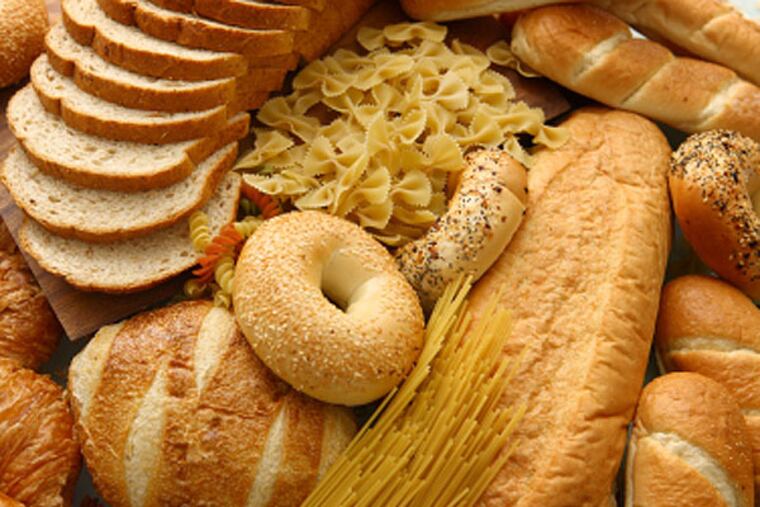Carb danger: A grain of truth?
Book implicates our typical diet in Alzheimer's, epilepsy & more

NEUROLOGIST David Perlmutter has hit the top of the New York Times best-seller list for his provocative nutrition book, Grain Brain: The Surprising Truth about Wheat, Carbs, and Sugar - Your Brain's Silent Killers.
He argues that carbohydrates (even the whole-grain carbs that we think of as the good ones) are linked to a range of modern-day maladies, including Alzheimer's, depression, headaches, epilepsy and ADHD.
Since we already know the havoc that carbs can wreak on our waistlines, could he be on to something? Or is the new carb-free movement just the latest wishful thinking about highly restrictive diets and their power to ward off disease, as Yale preventive-medicine expert David Katz contends?
Dr. Perlmutter's new 90-minute PBS special "BrainChange" airs Monday at 8 p.m. on WHYY. Be sure to check it out and see what you think.
I spoke by phone with the busy doctor earlier this week, and here's what he had to say:
Q: In your book you say that our brains have not yet evolved to be able to handle the kind of high-carb, high-gluten and high-sugar diets that we typically eat. What should our typical diet look like?
A: It should be exclusively low-carb - 50-80 grams of carbohydrates daily - but full of lots of good fats like olive oil, avocado, wild fish, nuts and nutrient- dense vegetables.
Q: What about fruit? And exercise?
A: A healthy lifestyle combines a diet high in healthy fats and oils, nutrient-dense vegetables and low-sugar fruits with regular exercise, six days a week.
Q: You believe our ancient ancestors ate about 75 percent fat, 20 percent protein and 5 percent carbs. So, essentially, you're proposing that we return to this type of ancient ancestral diet?
A: Human genes have evolved over thousands of years to accommodate a high-fat, low-carb diet. But today we feed our bodies the opposite way . . . eating 60 percent carbs, 20 percent protein, 20 percent fat. The high-carb diet is devastating our health and our health resources.
Q: We know that soft drinks have no nutritional value. But what about beverages like juice, milk, wine, beer, etc. Do beverages have a negative impact, too?
A: It's time to rewrite the book on beverages. You don't start your day with cola, right? There's 36 grams of carbs in your orange juice and about 39 grams in an equivalent serving of cola.
The orange juice is 9 teaspoons of sugar, and you haven't even eaten your croissant yet.
Q: I have to ask this one last question, because it always comes up: What about the Asian community? They eat a ton of rice and don't seem to have the same health issues.
A: Yes, the Asian community typically serves rice at each meal. But they eat a lot more vegetables and a little meat - not as much rice as we think.
When it comes to meat, we need to eat a little meat - like 4 to 6 ounces a day of grass-fed beef or wild salmon high in omegas - not that GMO [genetically modified] Frankenfood.